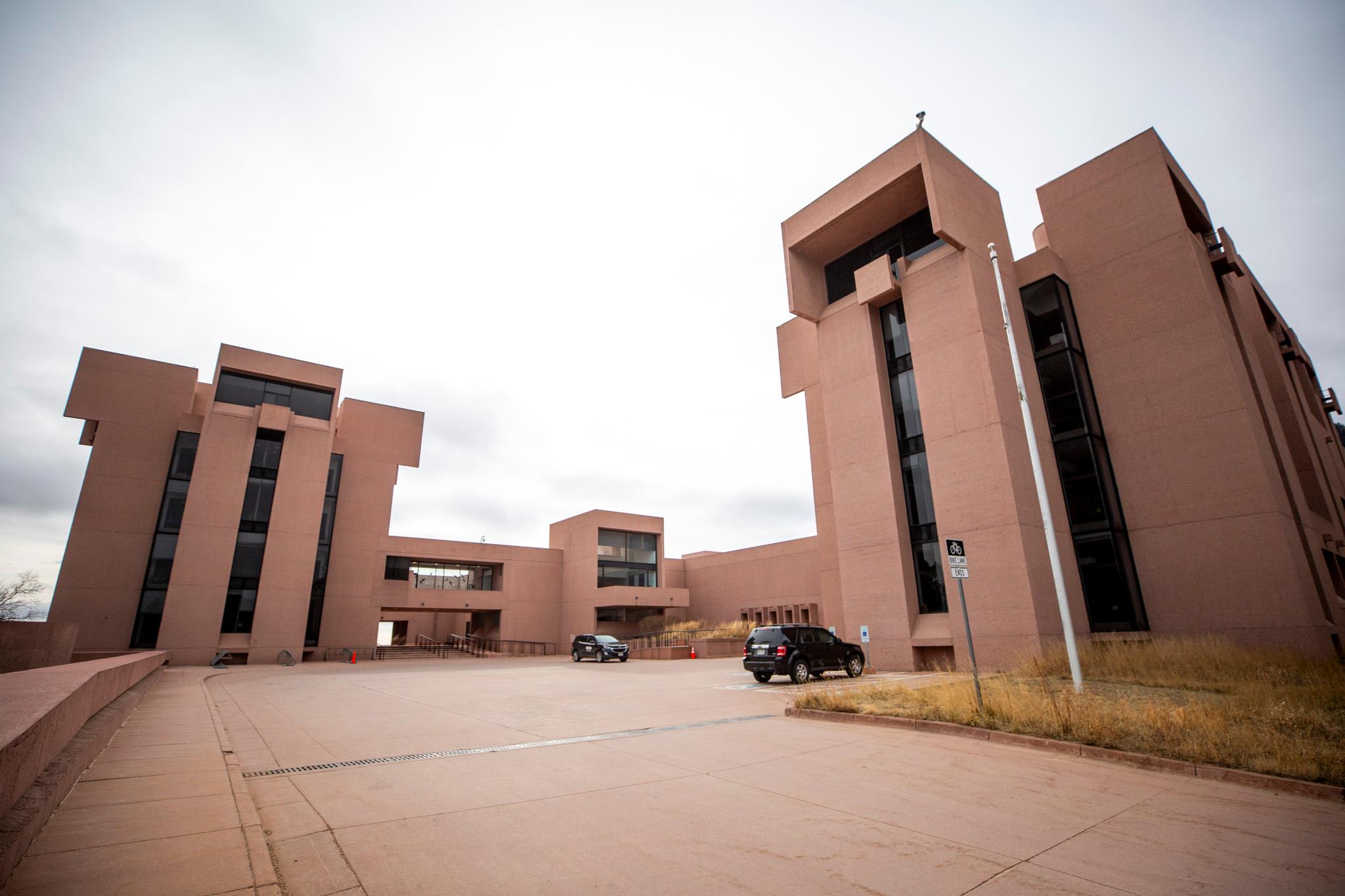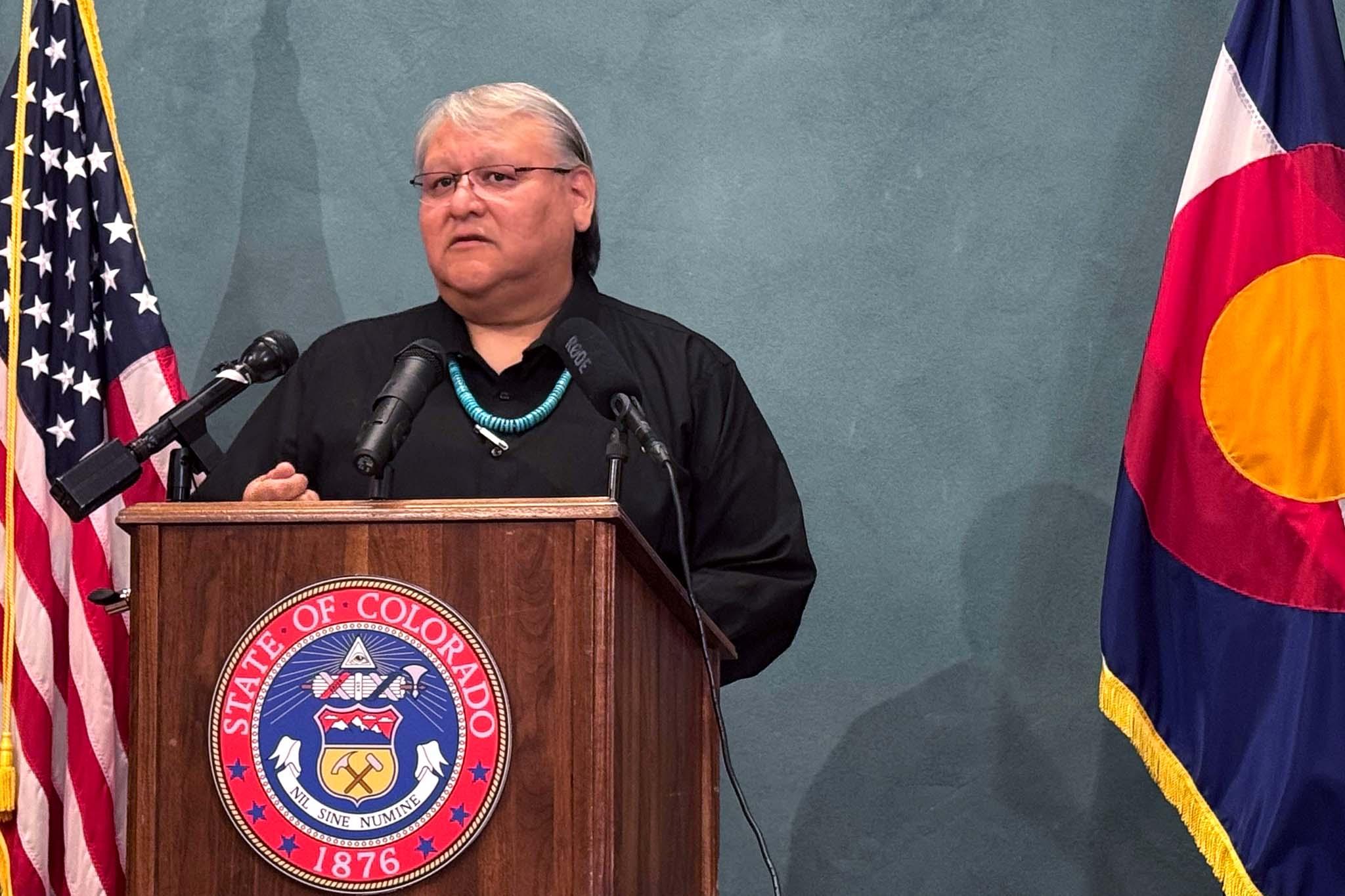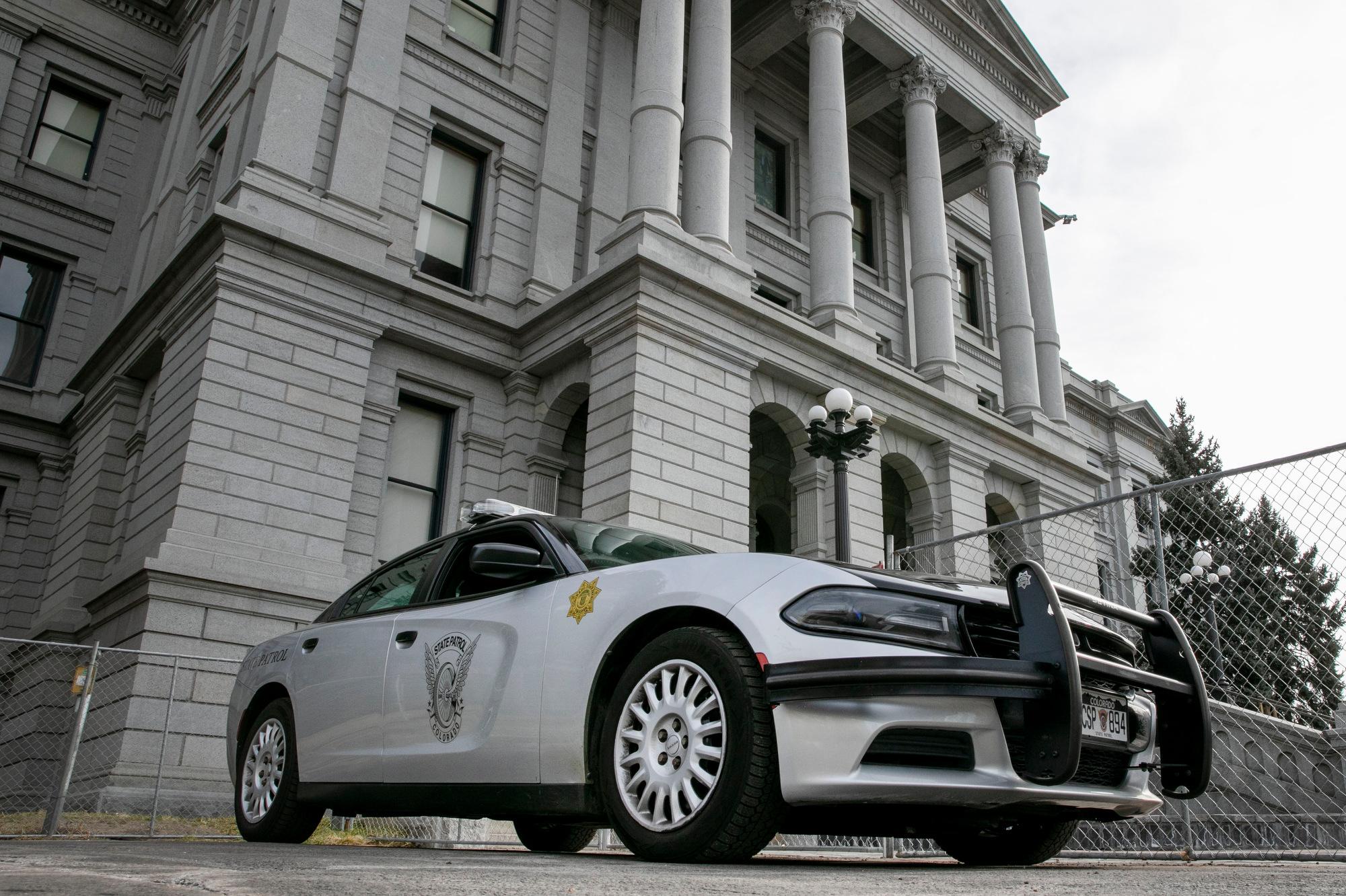
Forest management is a big issue for Colorado, especially as the threat of wildfires has grown. So when Sen. John Hickenlooper heard that Republican Rep. Bruce Westerman, chair of the House Natural Resources committee and a certified forester, was working on a forest management bill, Hickenlooper wanted to talk with him.
“A half-hour meeting turned into two hours and I said, ‘Well, I'd love to work on anything you need,’” Hickenlooper recalled. “And then they reached out and said, ‘We're doing this – Fix Our Forests [bill]. Maybe you can help us with the Senate side.’”
The House passed its version of the bill in January. Colorado Reps. Lauren Boebert, Jeff Crank, Jeff Hurd and Brittany Pettersen were co-sponsors of the bill. And while all Republicans and Pettersen voted for the bill, Democratic Reps. Joe Neguse, Jason Crow and Diana DeGette had concerns and voted no.
In April, Hickenlooper, Democratic Sen. Alex Padilla and Republican Senators John Curtis and Tim Sheehy introduced their version of the Fix Our Forests Act. Their bill includes some changes from the House version.
The bipartisan quartet hopes its proposals will address and improve forest management practices on federal lands across the West. That’s easier said than done, though, with competing — and sometimes conflicting — interests when it comes to how best to steward the millions of acres of forests in the U.S.. But the issue is more urgent than ever, with almost 9 million acres burned by wildfires in 2024.
Hickenlooper said he did “push back a little” on the House version of Fix our Forests and the group made changes to the bill “to get it a little bit more into shape.”
The Senate bill has gotten the support of fire chiefs, western governors, outdoor recreation groups, and some big environmental groups, like the Nature Conservancy, the National Wildlife Federation, and the Environmental Defense Fund.
“It's not a perfect bill, but it I think will dramatically improve our ability to protect our forests,” Hickenlooper said.
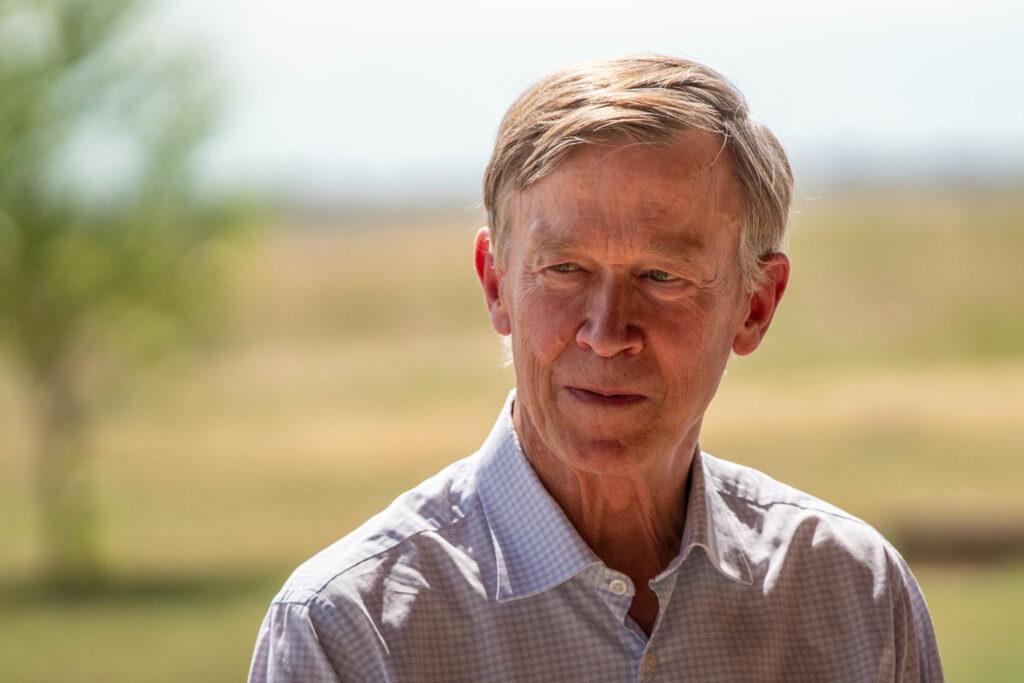
Among the positives for Hickenlooper is that the bill would set up a Wildfire intelligence Center to streamline federal response and share information, and it would boost reforestation programs.
How the bill handles forest management projects, which can involve logging swathes of land, is more controversial, though. Fix Our Forests would speed up the review process for those efforts. It can currently take up to a thousand days to get a permit approved and off the ground.
“We can get in there quickly and remediate it so it's not such a big danger. (The bill) makes sure that the local community is involved and that we have a collaborative process. It does increase the size of a piece of land that could be used for this purpose, which has alarmed some people,” Hickenlooper said.
He’s alluding to what’s called the "categorical exclusion.” In Hickenlooper’s bill, projects under that heading could cover as much as 10,000 acres, up from 3,000 currently. That’s not the only change that has alarmed some environmental groups. It could limit litigation and set a 150-day deadline for filing a judicial review.
Opponents of the bill warn that, despite its name, Fix Our Forests doesn’t actually fix the forests.
“Our concern is that the heart of this bill is rolling back environmental laws that (are) bedrock protections,” said Lisa Saltzburg, senior attorney with Defenders of Wildlife. She says the bill would be “removing science from decision-making, removing community voices, and making it harder to hold agencies accountable when they break the law.”
And even for programs the group likes in the bill, she notes there’s no funding for them. Saltzburg said her group appreciates some of the changes in the Senate version of the bill versus the one approved in the House, but says the core concerns have not been fixed.
“Opening up backcountry areas to commercial logging is not making communities safer,” she said.
For opponents of the bill, the worry that it could be a backdoor into more logging on federal lands is heightened by President Trump’s executive order to expand timber production by 25 percent.
Hickenlooper’s Colorado colleague, Democratic Sen. Michael Bennet, hinted at some other on-the-ground opposition to the bill during a committee hearing on it. He noted that Colorado communities are already far too aware of the risk of wildfires.
“It’s in that connection that I've heard from 30 local officials just last week in my state, that provisions of the Fix our Forest Act might undermine their ability to meaningfully engage with their federal partners in the development of forest projects,” he said, as he sought assurances that decisions under the bill would not be made without input from people on the ground in Colorado.
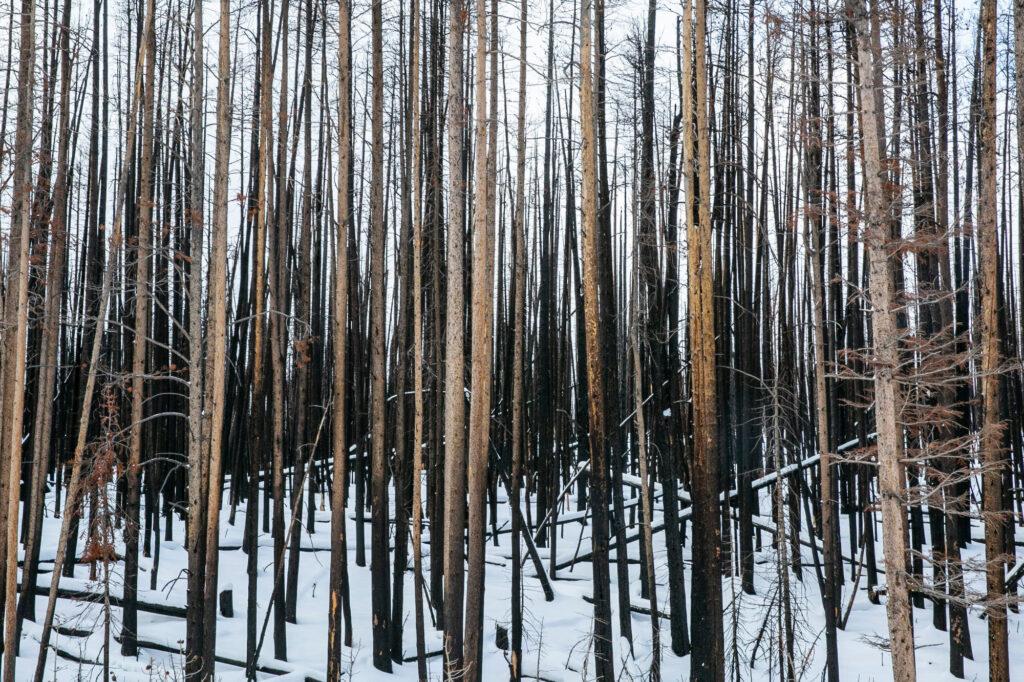
Despite concerns from opponents, supporters of the bill say the alternative could be worse.
“The reality on the ground has changed and a wildfire doesn't wait for a permit to destroy these landscapes,” said Matt Weiner, CEO of Megafire Action, a nonprofit focused on finding solutions to catastrophic wildfires, which supports both the House and Senate versions of the bill.
Weiner said he understands the concerns some environmental groups have due to the legacy of the timber wars of the 1980s and ‘90s, when clear-cutting large swaths of federal forests was allowed. But he said when you look at the Senate version of the bill, “it does a lot to make sure there are really clear guardrails and that these projects are being done in the purpose of wildfire resilience and would not do anything, as far as I can tell, to make it easier to clear cut timber.”
MegaFire Action did want some changes to the original House bill, many of which he said were addressed in the Senate version, including making it easier to get approval for prescribed fires.
Matt McCombs, head of the Colorado State Forest Service, said there are a number of provisions in the bill that will help the state, like the idea of shared stewardship and programs such as the Joint Chiefs Landscape Restoration Program.
But for him, the biggest positive is that Fix Our Forests will help everyone involved think and act bigger.
“It tries to take on the totality of the issues that we're facing around forest health, watershed health, and, and wildfire in the state, and gives us a whole set of tools that allows us to move again at the speed and the intensity of the problem that we're facing,” he said.
McCombs also understands that forest management is complicated because people love their public lands. “When we think about making changes, people have a high expectation that we're gonna get it right. And yet, you know, even when you think about the definition of forestry, it's an art and a science.”
He sees the bill, which the state supports, as trying to thread that needle.
Still, McCombs knows that cutting down a tree in the name of future benefits is not always going to be an easy sell. But he worries the alternative will be to see those trees burn in the years to come. He hopes the bill, and its approach to forest management, will help groups on both sides of the debate find a bit more of a middle ground.
“I have this dream that someday, Smokey Bear and the Lorax will be standing next to each other,” McCombs said of the iconic characters associated with preventing fires and protecting the environment. “And Smokey says, ‘you know, it's OK to let some fires burn, some of the time,’ and the Lorax turns back to Smokey and says, ‘you know, Smokey, it's OK to cut some trees some of the time.’”



